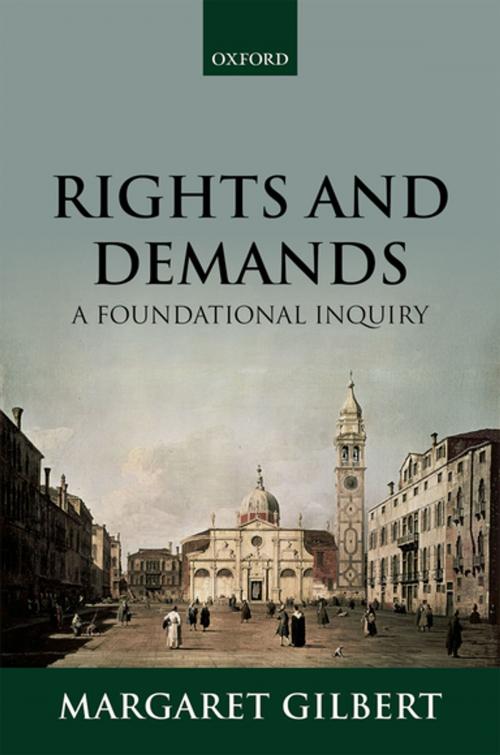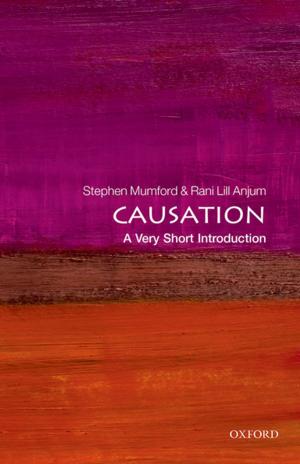Rights and Demands
A Foundational Inquiry
Nonfiction, Religion & Spirituality, Philosophy, Political, Ethics & Moral Philosophy| Author: | Margaret Gilbert | ISBN: | 9780192543202 |
| Publisher: | OUP Oxford | Publication: | April 19, 2018 |
| Imprint: | OUP Oxford | Language: | English |
| Author: | Margaret Gilbert |
| ISBN: | 9780192543202 |
| Publisher: | OUP Oxford |
| Publication: | April 19, 2018 |
| Imprint: | OUP Oxford |
| Language: | English |
Rights are often invoked in contemporary moral and political debates, yet the nature of rights is contested. Rights and Demands provides the first full-length treatment of a central class of rights: demand-rights. To have such a right is to have the standing or authority to demand a particular action of another person. How are such rights possible? Everyday agreements are generally acknowledged to be sources of demand-rights, but what is it about an agreement that accounts for this? The central thesis of this book is that joint commitment is a ground of demand-rights, and that it may be the only ground. In developing this thesis Margaret Gilbert argues in detail for joint commitment accounts of both agreements and promises. The final chapter explains the relevance of its argument to our understanding of human rights. Engaging where appropriate with contemporary rights theory, Gilbert provides an accessible route into this area for those previously unfamiliar with it.
Rights are often invoked in contemporary moral and political debates, yet the nature of rights is contested. Rights and Demands provides the first full-length treatment of a central class of rights: demand-rights. To have such a right is to have the standing or authority to demand a particular action of another person. How are such rights possible? Everyday agreements are generally acknowledged to be sources of demand-rights, but what is it about an agreement that accounts for this? The central thesis of this book is that joint commitment is a ground of demand-rights, and that it may be the only ground. In developing this thesis Margaret Gilbert argues in detail for joint commitment accounts of both agreements and promises. The final chapter explains the relevance of its argument to our understanding of human rights. Engaging where appropriate with contemporary rights theory, Gilbert provides an accessible route into this area for those previously unfamiliar with it.















